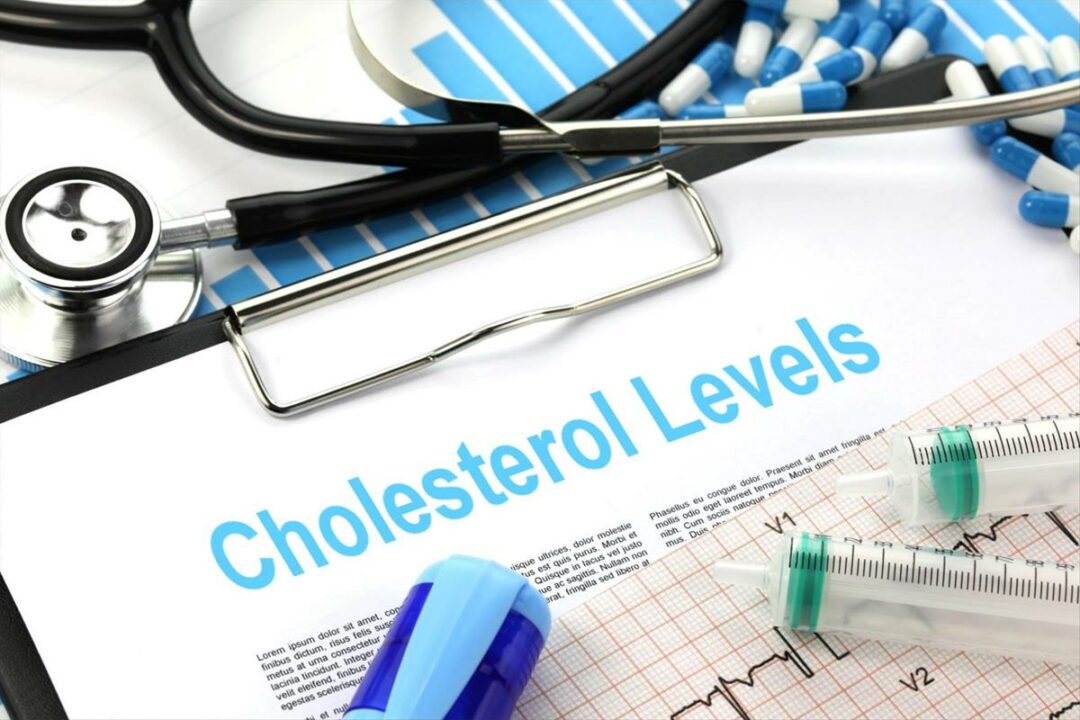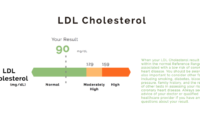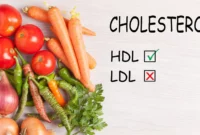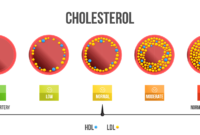
Cholesterol is a type of fat found in your blood that your body needs to build healthy cells, in this article major talk about { lower cholesterol without medication }. There are two primary types: low-density lipoprotein (LDL) and high-density lipoprotein (HDL).
LDL cholesterol is often referred to as “bad” cholesterol because high levels can lead to plaque buildup in arteries, increasing the risk of heart disease and stroke.
Conversely, HDL cholesterol is considered “good” because it helps remove LDL cholesterol from the bloodstream, lowering the risk of heart problems.
My opinion? It’s fascinating how crucial cholesterol is for our bodies, but it’s all about balance. Too much of the wrong kind can cause trouble, so keeping an eye on those levels through diet and lifestyle choices is a smart move.
Lowering cholesterol without medication often involves lifestyle changes:
1. Healthy Diet
Focus on eating plenty of fruits, vegetables, whole grains, and lean proteins. Reduce saturated and trans fats, and limit cholesterol-rich foods like red meat and full-fat dairy.

A healthy diet is like the foundation of a sturdy house—it forms the basis for overall well-being. It’s not just about eating to fill the stomach; it’s about fueling the body with the right nutrients.
A diet rich in fruits, vegetables, whole grains, lean proteins, and healthy fats isn’t just good for managing weight; it supports better energy levels, mood stability, and long-term health.
Plus, exploring different foods and flavors in a balanced way can make eating an enjoyable adventure rather than a chore. The key is finding a diet that suits individual needs and tastes while providing the essential nutrients the body craves.
Healthy Diet Steps:
- Include Fruits and Vegetables: Aim for a variety of colorful fruits and veggies. They’re packed with vitamins, minerals, and antioxidants.
- Whole Grains: Opt for whole grains like brown rice, quinoa, whole wheat bread, and oats. They’re high in fiber and nutrients.
- Lean Proteins: Choose lean sources of protein like poultry, fish, beans, and legumes. Limit red meat and processed meats.
- Healthy Fats: Incorporate sources of healthy fats such as avocados, nuts, seeds, and olive oil. They’re good for heart health.
- Reduce Added Sugars: Minimize intake of sugary beverages, desserts, and processed foods high in added sugars.
- Limit Salt: Watch your sodium intake by reducing the amount of salt in cooking and avoiding high-sodium processed foods.
- Portion Control: Pay attention to portion sizes to avoid overeating, even with healthy foods.
- Stay Hydrated: Drink plenty of water throughout the day to stay hydrated and support overall health.
Remember, a healthy diet is about balance and variety. Incorporating these steps into your daily routine can make a significant difference in your overall well-being.
2. Exercise Regularly
Aim for at least 30 minutes of moderate-intensity exercise most days of the week. It helps raise HDL cholesterol, which can lower LDL.
Regular exercise is like a magic potion for the body—it’s incredibly powerful and beneficial in so many ways. Not only does it keep the body fit and strong, but it also works wonders for mental health.
The rush of endorphins from a good workout can lift spirits and reduce stress like nothing else. Plus, the sense of accomplishment from meeting fitness goals can boost confidence and motivation.
It’s not just about hitting the gym; it’s about finding activities that bring joy while keeping the body moving. Whether it’s a brisk walk, a dance class, or hitting the weights, regular exercise is an investment in long-term health and happiness.
3. Maintain a Healthy Weight
Shedding excess pounds, especially around the midsection, can improve cholesterol levels.
Maintaining a healthy weight isn’t just about fitting into certain clothes—it’s about nurturing your body’s best state. It’s finding that balance where you feel good physically and mentally.
Carrying excess weight can strain the body, impacting energy levels, joint health, and even self-confidence. But achieving a healthy weight isn’t a one-size-fits-all journey;
it’s about finding a lifestyle that supports your body’s unique needs. It’s not always easy, but the benefits go beyond appearance—better overall health, reduced risk of certain diseases, and a greater sense of vitality. Small, sustainable changes can make a world of difference in achieving and maintaining a healthy weight.
Read also
- How to Lower Cholesterol – Inspira Health
- How to Loose Your Weight Fast
- How to Easily Calculate Your BMI – Inspira Health
4. Quit Smoking
Smoking lowers HDL cholesterol. Quitting can improve cholesterol levels and overall heart health.
Quitting smoking is like unlocking a treasure trove of health benefits. It’s not just about breaking a habit; it’s about reclaiming your well-being.
Smoking wreaks havoc on the body, increasing the risk of various cancers, heart disease, and respiratory issues.
But kicking the habit isn’t just about physical health; it’s about regaining control and freeing yourself from the chains of addiction. It’s a tough journey, no doubt, but the rewards—better breathing, improved heart health, and a longer, healthier life—are more than worth it.
Plus, the ripple effect on loved ones and those around you is immeasurable. Every step toward a smoke-free life is a step toward a brighter, healthier future.
5. Stop Alcohol
Excessive alcohol can raise triglyceride levels. Moderation is key for those who choose to drink.
Cutting back on alcohol can be a game-changer for overall health and well-being. Excessive alcohol intake can take a toll on the body, impacting everything from liver health to mental clarity.
Moderation is key, as excessive alcohol consumption can raise blood pressure, increase the risk of certain cancers, and contribute to heart issues.
Scaling back on alcohol can lead to improved sleep, better hydration, and a clearer mind. It’s not about eliminating the occasional drink entirely; it’s about finding a healthy balance that supports a vibrant, active lifestyle.
6. Increase Soluble Fiber
Foods like oats, beans, lentils, and fruits can help lower LDL cholesterol.
Boosting your intake of soluble fiber is like giving your body a VIP pass to better health. Soluble fiber, found in foods like oats, beans, lentils, and certain fruits, works wonders for your digestive system and cholesterol levels.
It acts like a sponge, soaking up cholesterol and helping flush it out of your body.
By doing so, it helps lower “bad” LDL cholesterol, reducing the risk of heart disease. Incorporating these fiber-rich foods into your diet isn’t just about keeping things moving smoothly in your digestive tract; it’s about giving your heart a helping hand for better long-term health.
7. Consider Plant Sterols and Stanols
These are found in certain fortified foods and can help reduce cholesterol absorption.
Plant sterols and stanols are like the superheroes of heart health. These natural compounds, found in certain fortified foods like margarine, orange juice, and yogurt, can significantly lower LDL cholesterol.
They work by blocking the absorption of cholesterol in the intestines, which means less “bad” cholesterol circulating in the bloodstream. Incorporating foods
Fortified with plant sterols and stanols into your diet can be an extra boost in the fight against high cholesterol, complementing other healthy lifestyle choices for a heart-smart approach.
As with any dietary changes, it’s good to consult with a healthcare professional before making significant adjustments.
8. Regular Check-ups
Monitor cholesterol levels regularly through blood tests. It helps track progress and identify any issues early.
Regular check-ups are like pit stops for your health—they’re essential for staying on track and catching potential issues early.
Visiting your healthcare provider for routine check-ups allows for monitoring important health markers, including cholesterol levels, blood pressure, and other vital signs.
These check-ups provide an opportunity to discuss any concerns, update vaccinations, and receive guidance on maintaining a healthy lifestyle.
They’re not just about addressing current health issues; they’re preventive measures that can catch problems before they become serious. Building a partnership with your healthcare provider through regular check-ups is a proactive step toward better long-term health.
Remember, these lifestyle changes might not completely replace the need for medication in some cases, especially if cholesterol levels remain high despite these efforts. Always consult a healthcare professional before making significant changes or decisions about cholesterol management.





